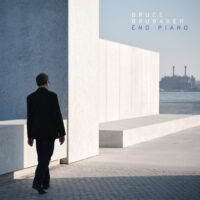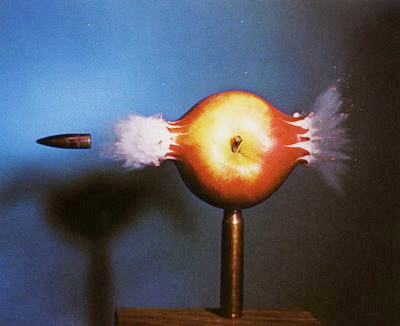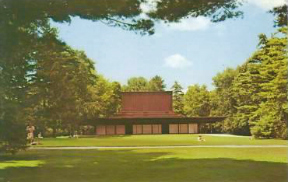The album Eno Piano will be released by InFiné on November 10, 2023. Additional tracks will be released in 2024. My new album got started with a question: Is it possible to play Music for Airports on the piano? Brian Eno’s original studio recording contains a lot of piano sounds, but they are manipulated, redistributed, dehumanized, or rehumanized. And then there are long, long sustained tones. The … [Read more...]
“Gifted”
In the world of music conservatories, in the classical music community, exceptional musical talent is usually considered to be the ability to quickly recognize pitches by ear, the possession of reliable musical memory, and the athleticism and dexterity to navigate complex patterns on an instrument. We have not considered imagination, or artistic idea-making. Perhaps these are difficult to recognize? Perhaps it's assumed that with fine skills will … [Read more...]
Keel
Marian Seldes observed that one of the great problems of being an actor was accepting, or coming to terms with the inevitable rejection in auditioning for roles each year. Along with artistic capacity -- we can add to the list of necessary attributes for a performer some means for handling disappointment. It's curious balance. We seek persons of delicate sensitivity and perception; they also need to withstand the turbulence of other … [Read more...]
Thoughts while playing Knee Play 4
It can happen, in the laboratory of the concert -- you notice things, discovery occurs. Suddenly, sometimes surprisingly, associations are made, even in music long-practiced. During the summer in France, I performed my solo piano transcription of "Knee Play 4" from Philip Glass's Einstein on the Beach. And, in an auxiliary channel of thought -- aside from the monitoring of my playing, aside from giving the performance -- I made … [Read more...]
All beats are not created equal
All beats are not created equal. They are endowed by their makers with differing length... Well, not quite. But if we're describing rhythm as rendered live by human musicians then yes, beats vary, even in regularly-beated music played "in tempo." Computer produced beats do not have to vary, as some post-1980 pop music displays. In human-played rhythm, how much do beats vary? Or how much can beats vary and still be perceived as "equal"? … [Read more...]
Continuity Conscious
In coaching a student in a master class, Alfred Brendel mentioned that very tapered phrase-endings may not allow for long-range musical continuity. If some notes in a cantabile phrase are much softer than the rest, those soft notes may seem to belong to another voice -- they drop out of the line, or suggest a subsidiary one. (In very soft tapering at the end of a melodic line, frequently I have the sense that pianists lose contact with the music, … [Read more...]
Sudden Death
Some folks probably were comforted by an article that appeared online last year -- an article titled, "Why You Probably Won't Experience Your Own Traumatic Death." "Ever wonder what it would be like to get shot in the head, or have your face smash into a car's windshield? Well, you can stop wondering, because you'll never know -- even if it does happen to you... "It takes as long as 150 to 300 milliseconds (ms) to be aware of a collision after … [Read more...]
Miraggio
I learned Brahms's Opus 114 quickly -- about ten days from my first encounter with the music to the performance. As a fellow at Tanglewood, I was working on several chamber and ensemble pieces. There were coachings. (Joel Krosnick worked with me and my Brahms colleagues.) The performance went well. There was one place in the last movement when I didn't come in properly -- I played a conspicuously wrong harmony. For years, I avoided listening to … [Read more...]
Next
"You can't play the next note until you finish this one." Obvious, yet how often classical performers truncate or even skip something. Particularly in anxious moments, or when difficulties, or the unexpected occur, the musical equivalent of a syllable or even a whole "word" is dropped or omitted. A musical score is an order of events. Rhythm and speed may be indicated, but most significantly we read that the soprano voice resolves from C to B, … [Read more...]
First Note
To conjure the first sound from the piano, at the beginning of a piece, at the beginning of a concert... In a live performance, this first sound can be made only once. In my mind, I do it over and over again. More than other instruments, the piano is an instrument of imagination. Most of us don't travel with our own pianos. Although we may have an ideal piano sound in our mind, we never hear it. So we're always adjusting, adapting -- … [Read more...]
Extempore
In the Classical music world, it is as if most musicians have forgotten how to talk -- or never learned. They can't communicate with easy ordinary extemporaneous speech. Can't express themselves in daily conversation. Instead, only scripts -- the detailed record, the detailed notation, the traces of music. We are always reading, never speaking for ourselves. Never communicating just what's on our minds or in our hearts. We are mute, unless the … [Read more...]
Dress like a banker — Dress like a rockstar
At Juilliard, the Old Guard piano teachers came to school dressed like bankers -- ties, jackets, well-polished shoes. (Musicians -- those Bohemians! -- needed to show they were respectable.) For the last fifteen years or so, classical musicians, at least some, try to dress like rockstars. Jeans, shoes you can't polish. (To show that musicians are not necessarily part of a stuffy "Establishment"?) … [Read more...]











